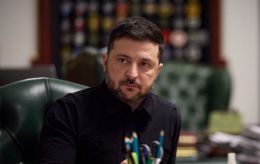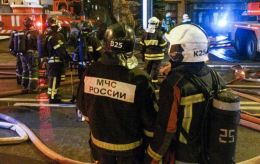Germany's coalition collapses: When could new Bundestag election be held
 Photo: German Chancellor Olaf Scholz (Getty Images)
Photo: German Chancellor Olaf Scholz (Getty Images)
German Chancellor Olaf Scholz will submit the issue of a vote of confidence to the Bundestag. This may happen as early as January next year, according to his statement during a press conference.
"In the first week of the Bundestag session next year, I will request a vote of confidence in the government, so the Bundestag can vote on it on January 15," said Scholz.
According to him, this means that Bundestag members will decide whether to pave the way for early elections.
"Then, this election could be held within the constitutional deadlines, no later than the end of March. I'm going to try to talk to the opposition leader Friedrich Merz. I would like to offer the opportunity to constructively work on two, or perhaps more, important issues for our country: strengthening our economy and our defense," Scholz emphasized.
He stressed that Germany's economy can not wait until new election are held.
The collapse of the coalition has already been met with a reaction from the far-right. Co-leader of the Alternative for Germany (AfD) party, Alice Weidel, even posted on X.
"The end of the traffic light coalition is a relief for our country. The end of the self-proclaimed progressive coalition, which has led Germany step-by-step into an economic abyss, was long overdue," wrote Weidel.
This year, the far-right AfD became the leading political force in the local election in Thuringia. In Saxony, the party came in second.
Green Party reacts to the coalition collapse
According to co-chair of the Green Party, Vice Chancellor, and Minister of Economic Affairs Robert Habeck, they plan to "quickly clear the way for organized early elections."
"Thus, in the spring, Germany will have to make a new decision regarding the next government coalition. Until then, we remain in office, and we are firmly determined to fully fulfill the duties of the government and provide the stability that Germany can and must provide in Europe," he stated.
Response from the Free Democratic Party
Meanwhile, Finance Minister and leader of the Free Democratic Party (FDP) Christian Lindner accused Chancellor Scholz of being unwilling to negotiate and seek compromises, as well as deliberately undermining the ruling coalition.
"The Free Democrats remain ready to take responsibility for this country. And we will fight for the same in another government next year," he said.
What will happen to Germany's support for Ukraine
Foreign Minister and co-chair of the Green Party, Annalena Baerbock, emphasized that Germany will continue its support for Ukraine.
"We are not leaving Ukraine on its own, but we are strengthening it so that it can continue this fight for our freedom and thus ensure our freedom," she stated.
Baerbock added that there would be "investments in Ukraine – additional billions needed for this, which are investments in our own security, in our own internal security."
"Because for nearly 1,000 days, we have seen that Putin has not only attacked Ukraine but also our democracies in Europe," the German Foreign Minister noted.
Coalition сollapse
Earlier today, German media reported on the possibility of the collapse of the traffic light coalition and early parliamentary election.
The cause was the projected budget deficit of over 13 billion euros in Germany's 2025 budget, with coalition parties unable to agree on how to address this situation.
Later in the evening, Scholz dismissed the Finance Minister amid the possible coalition collapse.

